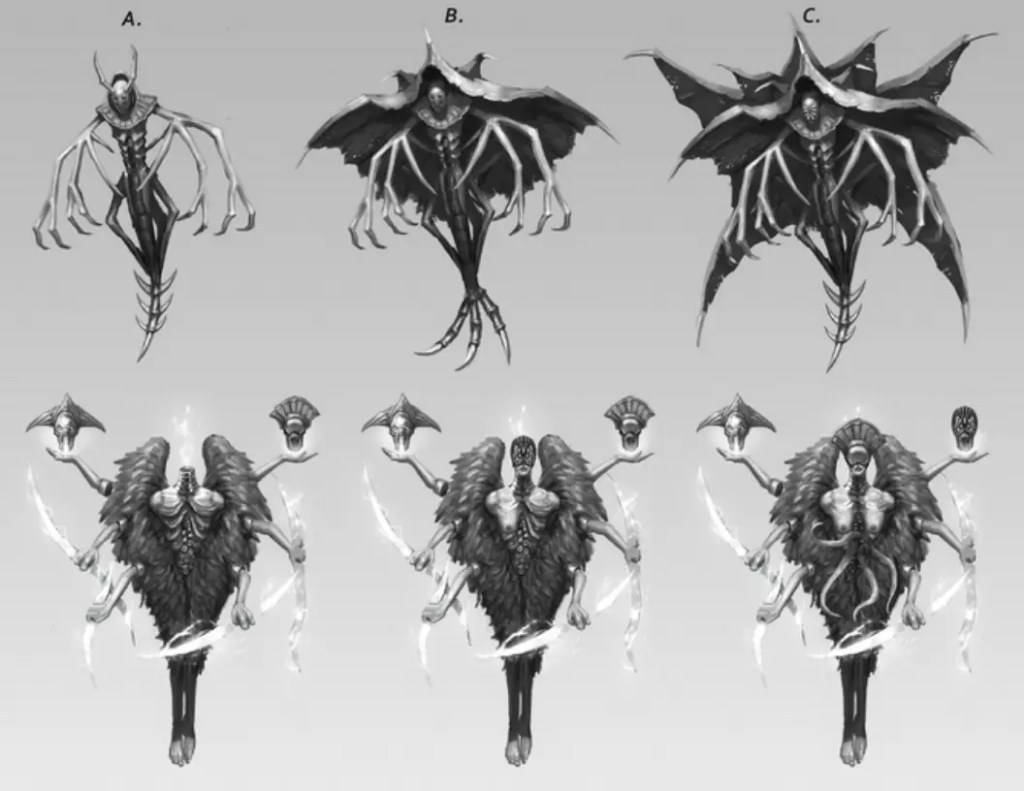Best Art Schools for Concept Art
Introduction
Welcome, Art Enthusiast, to our comprehensive guide on the best art schools for concept art. If you have a passion for creating imaginative worlds and characters, then concept art might be the perfect career path for you. In this article, we will explore the top schools that offer exceptional programs in concept art, equipping you with the skills and knowledge needed to succeed in this competitive industry.
Concept art plays a crucial role in the development of video games, films, animations, and other visual media. It involves creating visual representations of ideas, characters, and environments, serving as a foundation for the final product. Therefore, receiving proper education and training is essential for aspiring concept artists.

Image Source: improveyourdrawings.com
In the following sections, we will provide you with a list of the best art schools for concept art, covering various aspects such as curriculum, faculty, industry connections, and more. Let’s dive in and explore the exciting opportunities awaiting you!
What are Concept Art Schools?
Concept art schools are educational institutions that offer specialized programs in concept art. These schools focus on teaching students the necessary skills and techniques to create captivating visual designs for various media platforms. By providing a combination of traditional art training and digital tools, these schools prepare students to meet the demands of the industry.

Image Source: magzter.com
In concept art schools, students learn to develop their artistic abilities, storytelling techniques, and problem-solving skills. They also gain exposure to industry-standard software and receive guidance from experienced professionals. With a solid foundation in art theory and practical application, graduates from these schools are well-equipped to pursue successful careers as concept artists.
Who Should Attend Concept Art Schools?
Concept art schools are ideal for individuals with a passion for art, creativity, and visual storytelling. If you have a knack for drawing, painting, and designing, and aspire to bring your imagination to life, attending a concept art school can help you turn your passion into a profession.
Whether you are a recent high school graduate, a professional seeking to switch careers, or someone who wants to enhance their artistic skills, concept art schools welcome students from various backgrounds. These schools provide a supportive and immersive environment, fostering growth and development among aspiring concept artists.
When to Consider Attending a Concept Art School?
The ideal time to consider attending a concept art school is when you are ready to commit to a focused and intensive art education. While some individuals may choose to attend concept art schools immediately after high school, others may decide to pursue this path later in life. Ultimately, the right time to enroll in a concept art school depends on your personal goals, circumstances, and readiness to embark on a dedicated artistic journey.
It’s important to note that concept art schools often have specific application deadlines and admission requirements. Therefore, it is advisable to plan ahead and ensure you meet all the necessary criteria before applying.
Where Can You Find the Best Art Schools for Concept Art?
The best art schools for concept art can be found in various locations worldwide. While some schools may have a physical campus, others offer online programs, providing flexibility for students who may not be able to relocate or prefer the convenience of remote learning.
Notable cities known for their exceptional concept art schools include Los Angeles, San Francisco, London, Vancouver, and Montreal. These cities are home to renowned art institutions that have produced numerous successful concept artists in the industry.
Additionally, some concept art schools may offer study abroad programs or collaborations with international institutions, allowing students to gain a global perspective and expand their artistic horizons.
Why Should You Attend a Concept Art School?
Attending a concept art school offers numerous benefits for aspiring artists:
💡 Comprehensive Curriculum: Concept art schools provide a well-rounded curriculum that covers various aspects of concept art, including drawing, painting, character design, environment design, digital art, and more. This comprehensive approach ensures that students develop a strong foundation in all areas of concept art.
💡 Experienced Faculty: The best art schools for concept art have faculty members who are industry professionals themselves. Their expertise and experience provide invaluable guidance and mentorship to students, helping them refine their skills and develop their artistic voice.
💡 Industry Connections: Concept art schools often have connections with top companies in the entertainment industry. Through internships, guest lectures, and networking events, students have the opportunity to connect with industry professionals, potentially opening doors to future job opportunities.
💡 Portfolio Development: Building a strong portfolio is crucial for success in the concept art industry. Concept art schools offer guidance and support in creating a professional portfolio that showcases students’ skills and creativity. This portfolio becomes an essential tool when applying for internships, jobs, or freelance work.
💡 Collaborative Environment: Concept art schools foster a collaborative environment, allowing students to work with their peers on various projects. This collaborative experience simulates real-world work scenarios and helps students develop teamwork and communication skills.
How to Choose the Right Concept Art School?
Choosing the right concept art school can be a significant decision, as it lays the foundation for your artistic journey. Here are some factors to consider when making your choice:
📝 Curriculum: Evaluate the curriculum offered by each school and ensure it aligns with your artistic goals. Look for a program that covers all essential aspects of concept art and offers specialized courses in areas of your interest.
📝 Faculty: Research the qualifications and industry experience of the faculty members. A school with experienced and knowledgeable instructors can greatly enhance your learning experience.
📝 Facilities and Resources: Consider the facilities and resources available to students, such as studio spaces, digital labs, software, and access to art libraries. These factors can significantly impact your learning and creative process.
📝 Alumni Success: Look into the success stories of the school’s alumni. Find out where they are currently working and what projects they have been involved in. This can give you insight into the school’s ability to prepare students for careers in the industry.
📝 Location: Consider the location of the school and whether it aligns with your preferences. Determine if you prefer a bustling city with vibrant art scenes or a quieter environment that allows for focused artistic development.
Advantages and Disadvantages of Attending a Concept Art School
Like any educational decision, attending a concept art school has its advantages and disadvantages. Let’s explore these:
Advantages:
🔥 Immersive Learning Environment: Concept art schools provide an immersive learning environment where you are surrounded by like-minded individuals who share your passion for art.
🔥 Guidance from Industry Professionals: The opportunity to learn from experienced industry professionals can significantly accelerate your artistic growth.
🔥 Networking Opportunities: Concept art schools often organize events and workshops where you can network with professionals and like-minded peers.
🔥 Access to Resources: Schools provide access to art materials, digital tools, and resources that may be expensive to acquire individually.
🔥 Peer Feedback and Collaboration: Working with peers allows for valuable feedback and collaboration, fostering personal and artistic growth.
Disadvantages:
🔥 Cost: Attending a concept art school can be costly, including tuition fees, art supplies, and living expenses.
🔥 Time Commitment: Completing a concept art program requires a significant time commitment, often spanning several years.
🔥 Competitive Nature: As concept art is a competitive field, attending a concept art school does not guarantee immediate success. Hard work, dedication, and continuous learning are essential.
Frequently Asked Questions (FAQ)
Q: Can I become a concept artist without attending art school?
A: While attending art school can provide valuable education and guidance, it is not the only path to becoming a concept artist. With self-discipline, dedication, and access to online resources, you can develop your skills independently. However, attending a concept art school can accelerate your learning and provide industry connections.
Q: Are online concept art schools as effective as traditional schools?
A: Online concept art schools can be just as effective as traditional schools, especially for individuals who prefer the flexibility of remote learning. However, it is essential to choose reputable online schools that offer comprehensive curriculum, experienced instructors, and opportunities for feedback and collaboration.
Q: How long does it take to become a concept artist?
A: The time required to become a concept artist depends on several factors, including the individual’s prior artistic experience, dedication, and the intensity of the program. On average, it can take anywhere from two to four years to complete a concept art program and develop the necessary skills for a career in the industry.
Q: Can I specialize in a specific area of concept art?
A: Yes, many concept art schools offer specialized courses or allow students to choose elective modules in specific areas such as character design, environment design, or prop design. By focusing on a particular area, you can refine your skills and develop a niche within the concept art industry.
Q: What career opportunities are available for concept art school graduates?
A: Graduates from concept art schools can pursue a variety of career paths, including working in the gaming industry, film and animation studios, advertising agencies, and freelance concept art. They may become concept artists, character designers, storyboard artists, or art directors, among other roles.
Conclusion
In conclusion, attending a concept art school can provide aspiring artists with the necessary skills, knowledge, and industry connections needed to excel in the field of concept art. By immersing yourself in a supportive and creative environment, you can develop your artistic abilities, expand your portfolio, and gain valuable insights from experienced professionals.
Remember to carefully evaluate the various concept art schools available, considering factors such as curriculum, faculty, facilities, and alumni success. With the right education and dedication, you can embark on an exciting and rewarding career as a concept artist, bringing imaginations to life and contributing to the visual storytelling of various media platforms.
Final Remarks
While attending a concept art school can greatly enhance your artistic journey, it is important to note that success in the industry ultimately depends on your dedication, continuous learning, and passion for the craft. The knowledge and skills gained from a concept art school serve as a foundation, but it is your unique artistic voice and perseverance that will set you apart.
Embrace opportunities for growth, seek constructive feedback, and never stop exploring and experimenting with your art. The concept art industry is ever-evolving, and as a concept artist, you have the power to shape and inspire the visual narratives of the future.